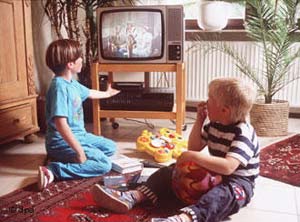 |
|
(Photo: dw-world) |
Your parents were right; you shouldn’t study with the TV on. New research shows that distractions affect learning processes, making it difficult for people to apply knowledge later on.
“Even if you can study while being distracted, it still affects learning, leading to decreased performance,” said Russell A. Poldrack, a psychology professor at the University of California, USA.
This can impact many young individuals. A study conducted by the Kaiser Family Foundation last year found that students from grades 3 to 12 spend an average of nearly 6.5 hours each day watching TV, videos, listening to music, playing video games, and using computers.
Poldrack explains that the brain learns in two different ways. The first way is called declarative learning, which involves the medial temporal lobe; in this mode, you learn actively, and knowledge is applied flexibly. The second way relates to the striatum, known as procedural learning.
 |
|
Psychology Professor Russell A. Poldrack (Photo: haan4kids) |
For example, when learning a phone number, you simply memorize it, using declarative learning and recalling it whenever needed. The second method, procedural learning, involves dialing that number 1,000 times; even if you don’t consciously remember it, you can go to the phone and dial the correct number.
The latter method of memorization is significantly more effective. If you rely on procedural learning, you need to have the phone present to create the environment for recall.
The problem is, Poldrack notes, these two forms of learning compete with each other, and when someone is distracted, procedural learning will overshadow declarative learning.
“Although we need to be versatile in today’s world, you still need to be aware of this. When a child is trying to learn a new concept or new information, distractions can be detrimental; they will impact their ability to learn,” Poldrack stated.
This doesn’t mean that a quiet environment is the ideal setting—music can enhance learning by making people happier. However, distractions are always harmful.
M.T

















































